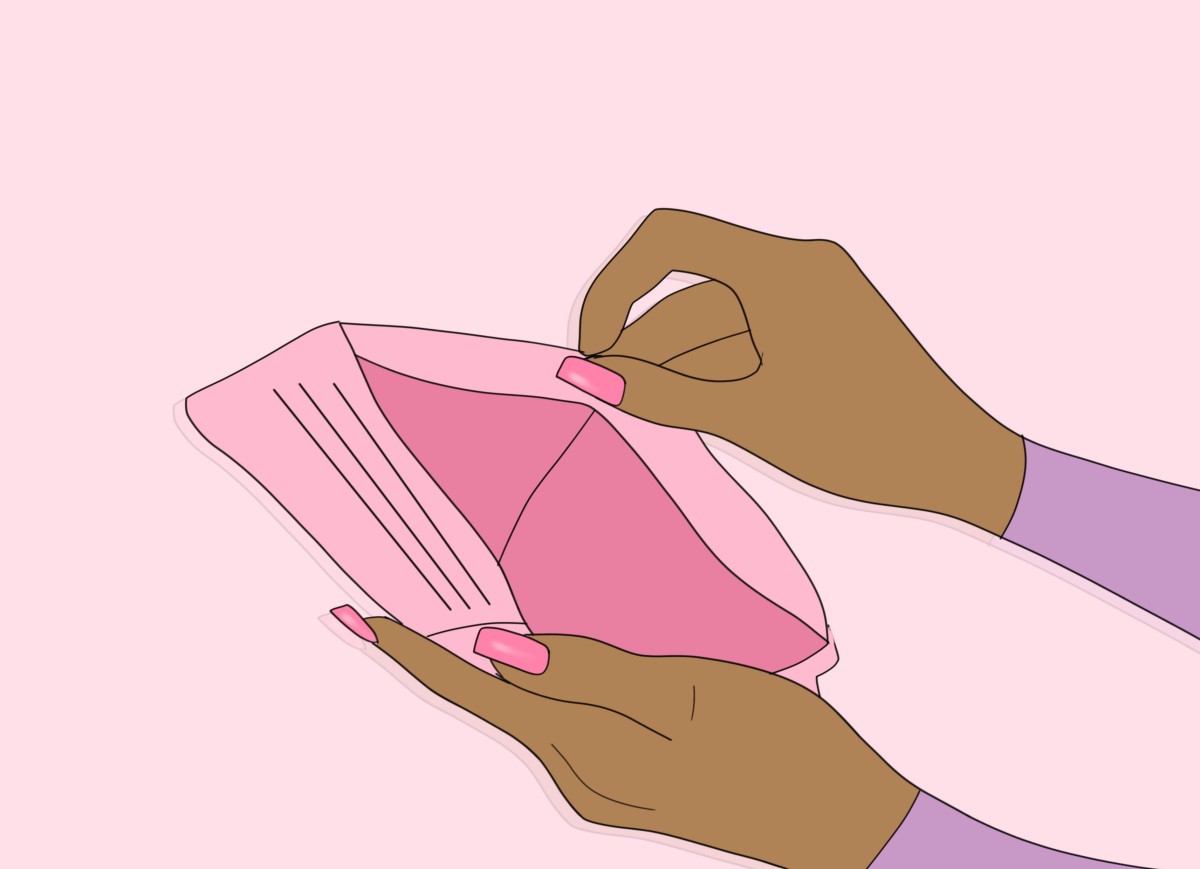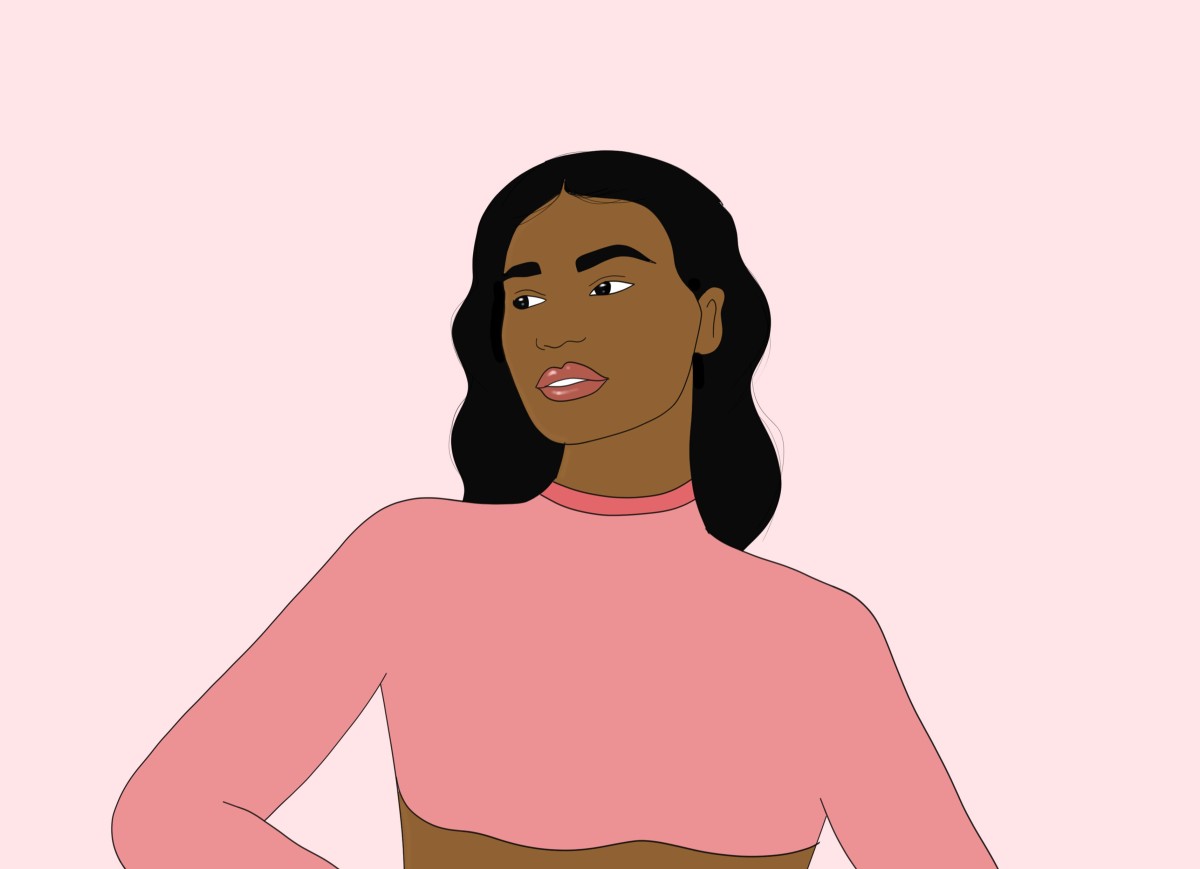The official Google definition of sustainability is an ‘avoidance of the depletion of natural resources in order to maintain an ecological balance.’ With sustainability comes a host of sister movements, like veganism, zero-waste policies, recycling, hippieism, alternative spirituality and plant parenthood. Now, of course, saving the planet should be everyone’s goal. But what kind of person comes to mind when you think of ‘sustainability’ and its sister movements?
For me, people like Isra Hirsi and Oladosu Adenike don’t immediately pop up. Instead, these words throw up mental images of people like Anita Roddick and Greta Thunberg, and as a Black woman trying to live up to this picture of the ‘planet-lover’, these figureheads have always left me feeling a little displaced in the movement. And that’s not because Black women or people of colour can’t be, shouldn’t be, or aren’t currently, eco-friendly. But the movement, as it stands, doesn’t make room for women who look like me, and I think the two major reasons for this conflict are:
1. The way the movement constructs its image
2. The very reasons behind sustainability becoming a movement in the west in the first place.
1. The image of sustainability in the US and Western Europe

Sustainability in places like the UK has a particular look, feel and tone. Think about the companies, people and figures you associate with the movement. They’re usually white and middle-class.
Just think about where stores like whole foods are situated – affluent and gentrified areas. These little things add up to paint a picture of who is ‘good’ at saving the planet. And it isn’t women who look like me.
One of the major issues I’ve always had with the movement is that many of the ‘sustainable’ brands use methods and recipes that people of colour have used for years. Like the ‘vegan curry’, for example, that Ella Mills, the founder of Deliciously Ella, gushed over in the ‘2020’ Netflix documentary ‘Down to Earth‘. Or the plantain chips that the brand Purely sells. Or the sudden surge in the use of shea butter in mainstream (non-black-owned) stores, like The Bodyshop and toying with the idea of using waste as fuel. All of these recipes and methods receive a level of praise and marketing that ethnic brands, like Grace, have never gotten – even though they were doing it first.
As a Black woman, I come from cultures that have had to be sustainable their whole lives, not as a ‘trendy’ way of saving the planet per se but as a simple and logical way to preserve their ability to live.
When I was in Tanzania a few months ago, my cousin and I sat in a restaurant that used old oil drums as chairs, it looked really artistic, but my cousin, who is Tanzanian herself, informed me that this had nothing to do with being ‘sustainable as a trend’, it was sustainability out of necessity. But we both knew that if that was the UK, those oil drum chairs would symbolise the restaurant’s commitment to the trend. They’d be seen as artistic and forward-thinking, and the chairs could sell for hundreds of pounds.
I also noticed the differences in approach to implementing ‘green’ policies. Let’s take plastic bags, for example. Tanzania has been plastic bag free for three years, and it’s shown a marked improvement in the quality of its oceans. But countries like the UK won’t follow suit. Instead, they’d prefer to make a profit from the use of plastic bags rather than ban them and actually make a difference.
All of this, while they ban the DRC (Democratic Republic of Congo) from mining for oil to apparently preserve the planet. Yet they don’t stop mining for oil themselves – and they started this process in the first place. So, is it about the planet? Or is it about keeping a Black nation in its place?
While the movement continues to have figureheads that look and sound like Ella Mills, it will also continue to make assumptions about who can, or should be, eco-friendly. And it’s not those who have owned ‘sustainability’ or plant-based living for years – Black women and people of colour – it’s those who are just now acquiring it.
2. The drive behind the sustainability movement
Is the drive behind sustainability really about the planet, and is it really about helping ‘everyone be sustainable? Let’s take a look.
Aside from looks, what’s the difference between people like Ella Mills and the average person? Well, availability of resources for one.
Organic, eco-friendly grown food is often only available in certain areas, areas like Richmond or Chelsea, affluent areas – or areas like Hackney that have been heavily gentrified.
They aren’t readily available in areas that are predominantly made up of ethnic minorities. So, we’d have to use the time we may not have to access them.
What’s more, vegan/ and organic foods and products aren’t cheap, and people who continuously vouch for them, like Ella Mills, heiress to Lord Sainsburys and the wife and daughter of politicians, have the money and life that most of us don’t. So, once again, a section of the population is excluded, this time based on income.
Nothing here suggests a step towards making sustainability accessible. Like many other worthy causes, it’s a trend. And while none of these factors directly exclude Black women from sustainability, they do make it harder for us to participate in the movement.
To me, all of these factors scream ‘saviour complex’. And part of how white people and nations erase that guilt is by positioning themselves as the most sustainable, most eco-friendly, to detract from the fact that many of the issues that sustainability is dealing with are because of the actions of the same nations in the past. So as a Black woman in Britain, you really aren’t obligated to take up this cause. Do your bit and leave it at that. There is a place for Black women in sustainability. There are black activists we could be rallying behind like Oladosu Adenik; Black eco-friendly brands we can support like Ore mi, and traditional recipes we can use. And if you don’t mind being boxed in by a stereotype, there’s always the trope of the dreadlock or afro sporting, uber spiritual, and naturalist Black woman that you can adopt. But the public face of the wider movement – the part of the movement that gets awards, book deals, TV shows, and gets shown on national television – will undoubtedly always come a few shades lighter, and it’s not your place to try and fit into that mould if it was never made for you.
Find more lifestyle articles here >
Written by Zainab Raghdo
Illustrated by Francesca Mariama

